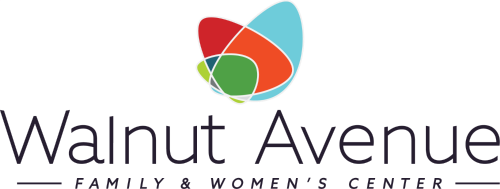
Volunteer
Background
Checks
-
A criminal background check involves the California Department of Justice (DOJ) providing Walnut Avenue with a report on any convictions a person may have received under criminal law. This is done with you being fingerprinted to verify your identity.
Except under rare circumstances, a minor’s record is typically sealed upon reaching age 18, so any convictions you may have received as a minor are unlikely to appear.
Criminal law is separate from civil (including family) law. If a conviction involves being prosecuted by the state, then it’s criminal law, but lawsuits which are brought against you by another person or non-prosecuting authority, such as a landlord or employer, are civil. This means that Walnut Avenue will not be notified of any cases related to divorce, custody, tenancy, or other civil cases (unless those cases led to a criminal conviction).
-
Because criminal law covers a huge variety of behaviors ranging from non-violent to violent, and because the US legal system disproportionately impacts some demographics of people more than others, Walnut Avenue does not prohibit volunteering purely on the basis of having a criminal history. Disqualifying history includes:
Abuse, harm, or neglect towards another person of any age
Other harmful or exploitative behaviors relevant to the responsibilities of the volunteer position in which a volunteer candidate is interested
Walnut Avenue has no requirement regarding the recreational use of substances as long as a volunteer remains in compliance with our drug use policy, described in the Volunteer Handbook available on the volunteer page.
-
A criminal background check provides an agency with a snapshot of any criminal arrests and convictions you may have experienced since age 18, but it also means that the agency will be notified of any future arrests. This means that if you’re arrested for a criminal act while actively volunteering with Walnut Avenue, Walnut Avenue will be notified.
Depending on the nature and severity of the alleged act, Walnut Avenue may choose to suspend your volunteership until the resolution of your case; for allegations of abuse or harm, we may terminate it entirely.
-
A criminal background check shouldn’t impact the status of someone who is undocumented unless the person has a warrant out for their arrest or there are standing deportation orders. That being said, immigration law is complicated and often changing: if you’re concerned about how a criminal background check will impact you based on your citizenship status, Walnut Avenue would recommend contacting an immigration agency or lawyer before proceeding.
-
Unfortunately, if you’ve done a background check elsewhere, you can’t transfer it to Walnut Avenue. Each background check opens up a kind of ‘account’ between the company or organization and the Department of Justice, and no one else is allowed to ‘use’ that account. You will need to do a new background check with Walnut Avenue.
-
If you volunteer with us, leave, and then return, you will not need to redo a background check unless an administrator has requested that the DOJ close your account with us. Usually this is only done if we receive notification of an incident for someone no longer with us or if an exiting volunteer specifically requests that we do so.
-
In California, only employees who are registered with the DOJ as a Custodian of Records may legally access your background check information. Currently, two staff persons have this status: the fiscal manager, who oversees employee information, and the community engagement coordinator, who oversees the volunteer programs. Your information is kept confidential.
-
If the cost of a background check would otherwise prevent you from participating with us, you can request a fee waiver application from Walnut Avenue. If approved, this fee waiver authorizes LiveScan to charge Walnut Avenue for your background check.
-
You will need a form from Walnut Avenue which tells the government which agency is requesting your information.
This form is emailed to you after you register your interest in a program. You may either print the form or you may pick up a free copy of it at our main office by requesting one at the front desk.
Take that form with you as well as a valid photo ID to any LiveScan office in California. LiveScan is typically drop-in and does not offer appointments. At their office, you will give the employee the form and you will be fingerprinted. It takes about 10 minutes, plus whatever time you might spend waiting in line.
After that, it takes several business days to process. If you have a criminal history, it may take a little longer. If you do not hear from a staff person within a few weeks, please reach out to the staff contact listed on the volunteer page to check in.
